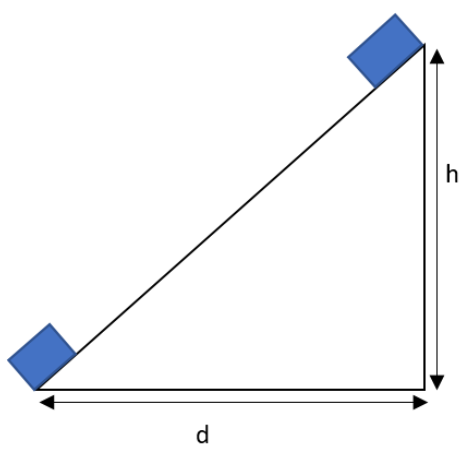Question
Question: The distance between the rails of the track can be written as \(1.67m\). How much the outer rail is ...
The distance between the rails of the track can be written as 1.67m. How much the outer rail is to be elevated for the curve of 0.5km radius, so that a train moving with speed of 54kmh−1 can take a safe turn on track?
A.80mmB.75mmC.60mmD.75cm
Solution
The height of the elevation can be found by taking the ratio of the product of the distance between the rails of the track and the square of the speed of the train to the product of the acceleration due to gravity and the radius of the elevated curve. Substitute the values in the equation. This will help you in answering this question.
Complete step by step solution:
let us assume that the height at which the elevation of outer rail over inner rail will be given as h. This height of the elevation can be found by taking the ratio of the product of the distance between the rails of the track and the square of the speed of the train to the product of the acceleration due to gravity and the radius of the elevated curve. This can be written as,
h=rgdv2
Where d be the distance between the rails of the track, v be the velocity of the train, rbe the radius of the elevated curve and gbe the acceleration due to gravity.
The distance between the rails of the track has been given as,
d=1.67m
The velocity of the train can be shown as,
v=54×185=15ms−1
The radius of the elevated curve will be,
r=0.5km=0.5×103m
And the acceleration due to gravity can be written as,
g=9.8ms−2
Substituting these values in the equation will give,
h=10×0.5×10001.67×(15)2=0.075m=75mm
Therefore the height of the elevation has been calculated. The answer has been mentioned as option B.

Note: The units of the quantities mentioned in the question are to be taken care of well. The speed has been mentioned in the units of kilometers per hour. For getting the answer in SI units, the speed has to be in meter per second. In order to convert the kilometer per hour into meters per second, the speed should be multiplied by five first and then divide by eighteen.
